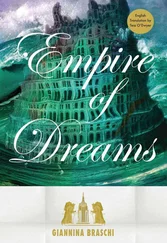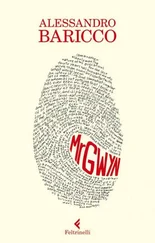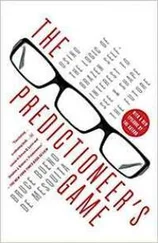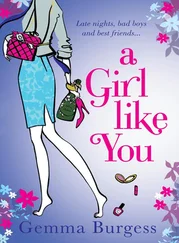— Did you put the dime inside?
— Twenty-five cents.
— Didn’t she say ten cents?
— No, it was twenty-five with the body in a potato sack.
The departure was called at midnight sharp. We snuck down the stairwell, taking laps down and around the corners — running spooked to death — feeling the pennies jingling and the steak bouncing — until we reached the deserted subway where rats were running along the tracks. You kept a discreet watch while I closed my eyes and threw it:
— Get away. Shoo-shoo. Eat your hex. I’ve got a scarf in my fist, tied in a knot — go choke on the knot of your own wicked plot. Grrrrr. Grunts. Gurgles. Get away. Shoo-shoo. No more harm. Candles white, embers blue, salt, pepper, vinegar too. Get away. Shoo-shoo. Foo on you.
The dead man fell headfirst out of the sack, and toward him came a feverish pack of hungry rats. They smelled the meat. That’s when the train came by and ran over him, but spared the rats lurking under the tracks, and they finished him off.
— How tragic for the dead man. Three times dead.
— Maybe more. Who was it?
— Flesh wants flesh.
— What will our lives offer death?
— Phew, it was an exorcism.
— It was Pancho Corzas.
— He’s dead.
— He wasn’t in mine. The whole world thought he was, but he wasn’t in mine.
— He died in ’84 before your brother.
— You’re wrong. Bianca had thought so too. It turns out it was a ploy for him to paint far from the madding crowd. Better dead. So other painters wouldn’t envy him. His prices soared at Sotheby’s and Christie’s. And, furthermore, while everyone took him for dead, he was doing his best work, tucked away in Europe since ’84. I saw his paintings — the ones he did over there — his swirling yellows stood out from the surrounding blacks, drawn with a magic marker that had the marks of death.
— That’s what must’ve brought him back to life. I’ve always thought the best things happen in the closet.
— You should have seen Bianca’s face when he walked through the door, sober, wearing a French beret. They called me immediately from Mexico. I told Iris Pagán about it.
— Before or after she died?
— After, and she told me she wanted to visit him and see his new series. I felt this dream had something vital to do with me.
— Maybe with joining the world again.
— What do you mean?
— Start working outside.
— No, with my book. I thought the structure was capsizing. It came back to life like Pancho with new visions.
— This book, I’ve always thought so, but now that I’ve actually read it, I’m even more convinced. You’ve created all the corners, now you have to fill them with sculptures, bagatelles, diamonds. What’s the hurry? There’s no rush? It’s a biography. And your life has just begun. You can write other books and keep this one on our nightstand. If you publish it now, how many other dreams, thoughts, fights will come — and you can replace the worst with the best. And the best — it’s a matter of timing — when you continue living — you’ll realize — wait a minute, this fragment I wrote two years ago is obsolete. I’m talking about The Piano when I should be talking of the latest movie in town. That’s how time is. And you’re trying to conquer reality. How are you going to know it’s ended if you are still alive?
— And what do I do with the malicious people who come to me and tell me:
— Did you finish it?
— Almost.
— You have been saying that for years. Did your juices dry up? Watch out, you’re losing credibility. And what about the grants you won to finish it?
— Most of it is complete.
— The penumbral zone of past impressions. But what about the future?
— Future editions can add future episodes.
— Wouldn’t it be wonderful to write a book all your life — a book that’s about your life with all the elements of a biography — but it’s not an autobiography. Not a dream play. Not a novel. Not a poem.
— A lifetime work in progress. It’s a terrifying concept. You would be amazed how many times I thought I was finishing it, when another idea struck my head, another thunderstorm hit, and other pieces fell into the bottomless pit, forming new geometries, new blocks, and other rooms appeared that I’ve had to decorate.
— A quarter to the left, 1st panel, a quarter to the left, 2nd panel, a quarter to the left, 3rd panel, a quarter to the left, 4th panel. And then, all of them, at the same time, a quarter to the right. And there you have it: musical fugue.
— But don’t they fall into the same order if you are turning all of them a quarter to the left, and then a quarter to the right.
— Look, look at them. Did they fall into the same order?
— No, but I don’t understand why not.
— Tess, honey, you understand. Explain it to them. They don’t have a logical bone in their bodies. They are poetic.
— Mona, would you like to be called artistic? No, you are an artist. She is a poet. And he is a philosopher.
— But they’re not logical.
— We are very logical. And don’t embark Tess in your same boat. Tess understands Paco Pepe and me. You say we are confusing.
— What logic is there in sprinkling paprika on my butterball turkey? I’m a maniac for order and cleanliness. That’s why I unzipped the gray cat’s coat.
— Paco Pepe believes in magic. He’ll sprinkle his magic powder and pour his magic syrup into the rice. You’ll see how it tastes.
— Tess, Tess.
— Just a moment, Makiko.
— What about the composition?
— Look, Tess, look.
— Fire, Mona, fire.
— The tablecloth is burning, burning, burning.
— Water, water.
— Not water. Use napkins. Not water.
— Why not water?
— Not water.
— Why not water, water?
— Water extinguishes fire. That Mona is always talking about logic. What is the logic of using napkins to put the fire out?
— My whole party ruined. My whole table burned.
— Quick, add more paprika to the turkey. And more Coca-Cola to the rice now that she is busy.
— My whole dinner ruined. My tablecloth in flames, in flakes. Ruined.
— Absurd, did you notice, nobody thought to blow out the candles.
— It would’ve blown out the magic and the party hasn’t even begun.
— Someone’s knocking. Get the door.
— Jonathan, you’re late.
— Qué viva el Imperio de los Sueños!
— Qué viva Jonathan Brent!
— Qué viva Paco Pepe!
— Qué viva kiko!
— Qué viva Tess!
— Damn, they’re giving me a complex. Always Empire of Dreams . Paco Pepe, don’t you like my new book better?
— They’re apples and oranges.
— But which do you prefer?
— You haven’t lost your touch. You keep growing.
— But I want to know which one you prefer. Please, tell me, please.
— I would never tell you that.
— Then I’ll never know the truth.
— There’s a style for every taste.
— Tell me, Jonathan, how is it doing?
— Well, I don’t know if I should tell you this. Well, okay, they are bidding on the paperback rights.
— Who, Jonathan, who?
— I’m not at liberty to tell you this.
— Tell me, I won’t tell anybody.
— The Italians and the Germans want it. And even the Spaniards want to translate it into Spanish.
— It was written in Spanish.
— Does Yale have the rights in Spanish?
— It’s the only rights you don’t have.
— Did your publishers in Spain ever pay you?
Читать дальше












